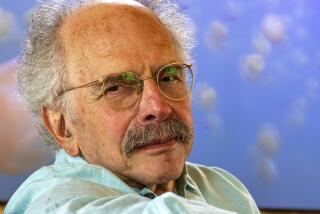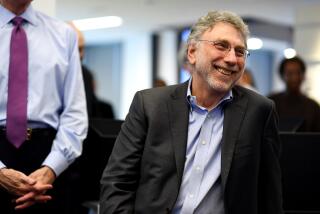NONFICTION - Nov. 15, 1992
- Share via
THE LAST GREAT RIDE by Brandon Tartikoff and Charles Leerhsen (Turtle Bay Books: $21; 223 pp.). It’s every parent’s nightmare--a child fantasizing that he or she could “shrink to a tiny size and crawl inside the television set,” thus being able to “live and breathe television from the inside, all day.” That was Brandon Tartikoff at the age of 7, however, and he was lucky enough--if lucky is the word--to live out his dream. “The Last Great Ride,” written with People magazine editor Charles Leerhsen, is a winsome and often self-deprecating account of Tartikoff’s years in television, with particular emphasis on his reign as head of NBC Entertainment between 1980 and 1991. Tartikoff’s book is essentially a string of amusing anecdotes, the underlying theme being that the television business is a) only a game, and b) should be fun. In fact, it often seems just that, what with battles over who can say schmuck on TV (Johnny Carson yes, cast members of “Saturday Night Live” no) and who would make the best Sam Malone (not William Devane, after auditioning for the “Cheers” lead barefoot and stepping on shards of broken glass). Television, of course, is a much more cutthroat and serious business than Tartikoff makes out, but his Pollyanna-ish approach--which extends even to his own two bouts with cancer--somehow seems appropriate after you learn that programmers actually listen to pitches touting a Noah’s ark miniseries as “ ‘Roots’ with animals” or a sitcom written by Native Americans about life on the reservation as “an Indian ‘Good Times.’ ” Tartikoff told the would-be producer of the aforementioned sitcom that “if the Indians are talking like this, it’s time to get out of the business”--and he subsequently did, becoming chairman of Paramount Pictures for 15 months before resigning in October to take care of his daughter, badly injured in a 1991 car accident. One can only hope that Tartikoff will resist all attempts by his former peers in television to turn his private tragedy into a public spectacle.
More to Read
Sign up for our Book Club newsletter
Get the latest news, events and more from the Los Angeles Times Book Club, and help us get L.A. reading and talking.
You may occasionally receive promotional content from the Los Angeles Times.







